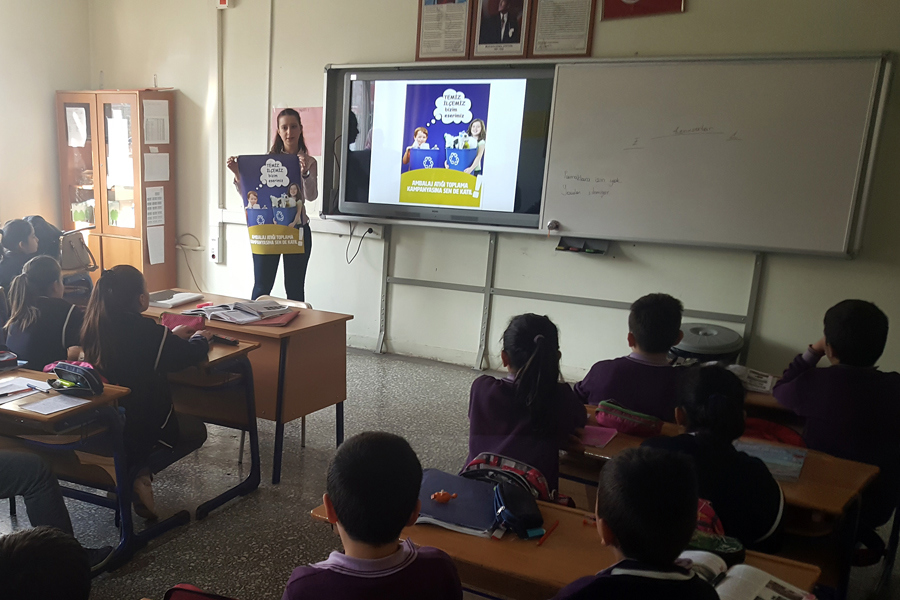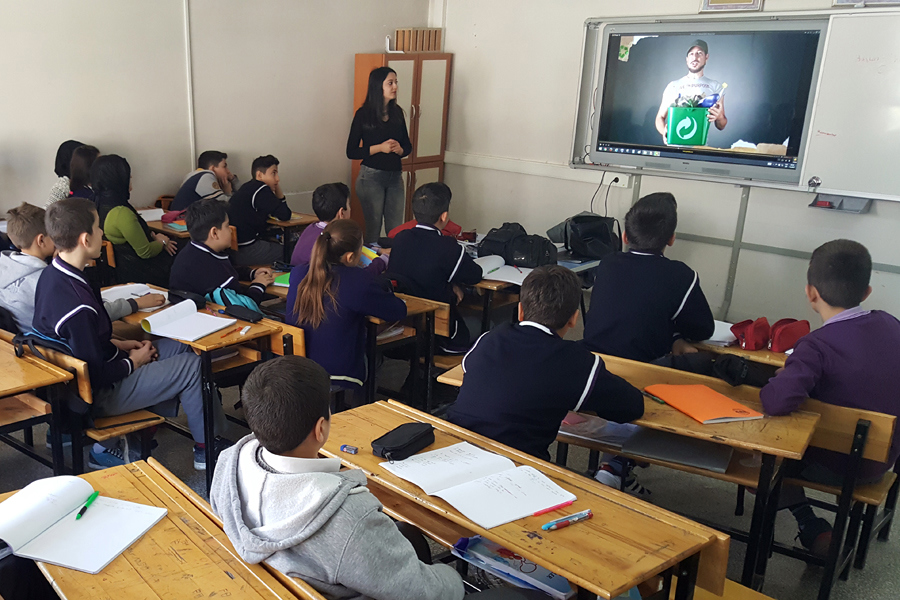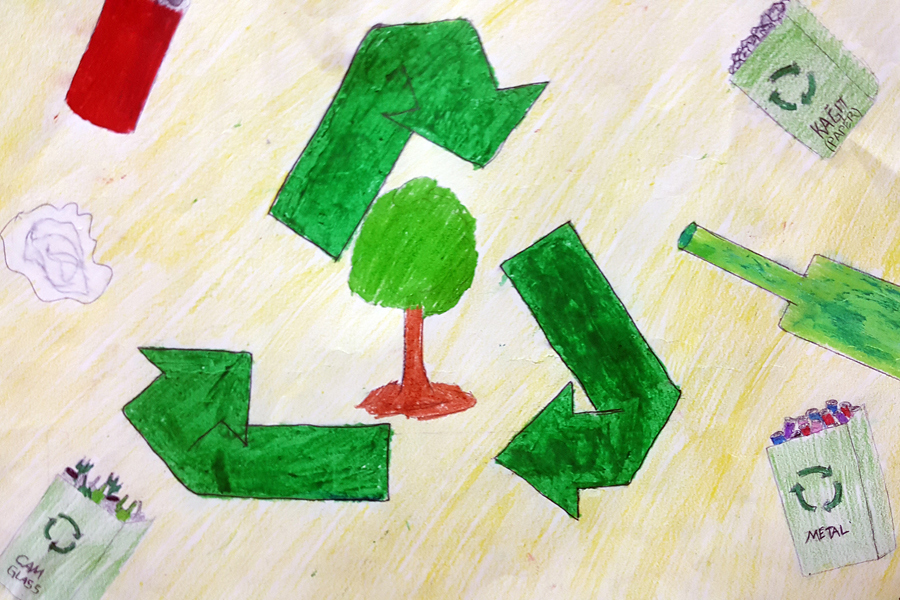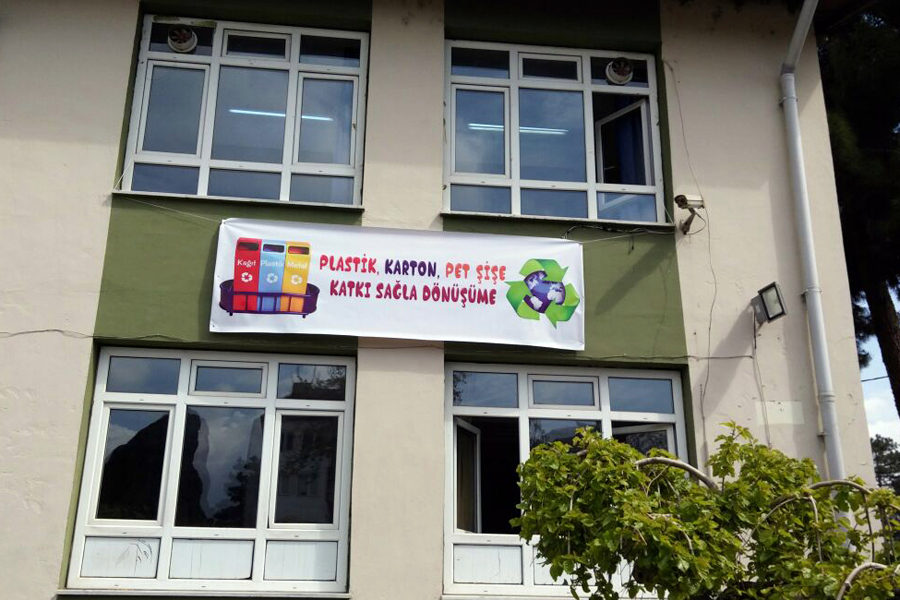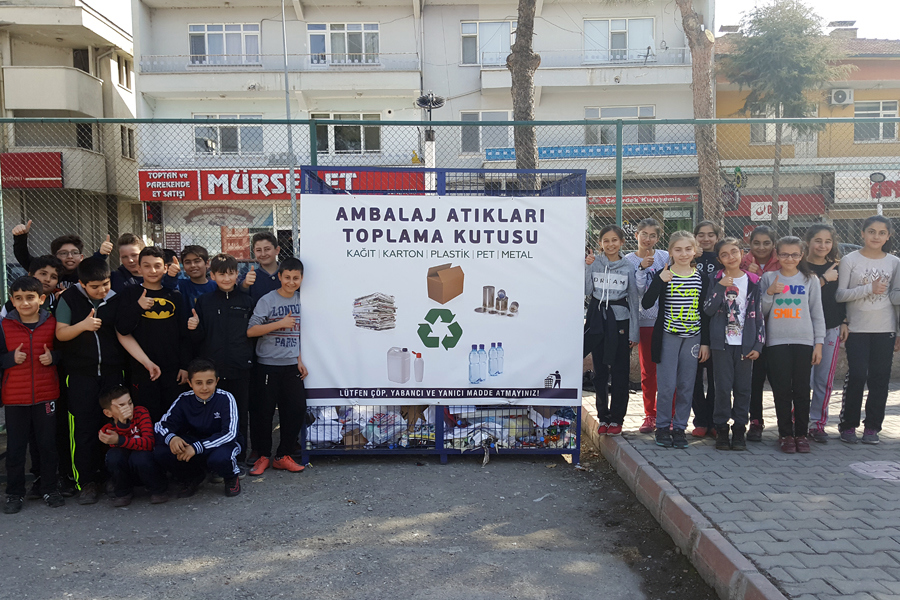
As part of the effort to achieve a long-term solution to the waste challenges in the Kargi power plant reservoir, two schools in Osmancik were selected for an environmental pilot programme in 2017 to raise awareness in the community about waste recycling. The school children's efforts to collect paper and plastic for recycling were rewarded with used and recycled computers from Statkraft.
Social responsibility: Sharing the benefits from waste management in Turkey
Paper, plastic and other forms of waste threatening to enter the water intake from a hydropower plant’s reservoir is a constant challenge and a constraint on plant operations. In Turkey, several tonnes of waste have been collected with the help of local schools – to everyone’s benefit.
It started out as an effort from Statkraft Turkey to tackle the large amount of waste accumulating in the reservoir of the Kargi hydropower plant on the Kizilirmak River in northern Turkey.
It has turned out as a win-win situation, and a prime example of sharing value between the power plant, the neighbouring community and not least the local environment.
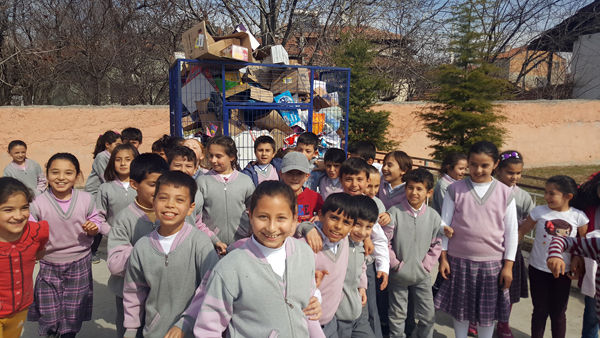
Waste means income for local schools
In the spring of 2017, a campaign was initiated directing at the local community. In order to achieve a sustainable solution to the waste problem it was decided to focus on increasing the knowledge and awareness about waste management, in addition to more immediate efforts.
In close collaboration with local authorities, local schools were chosen as pilot cases.
After kick-starting the campaign with an incentive scheme where every tonne of paper and plastic waste collected was rewarded with a used and recycled Statkraft computer, 10 tonnes of waste were collected and an impressive level of enthusiasm created.
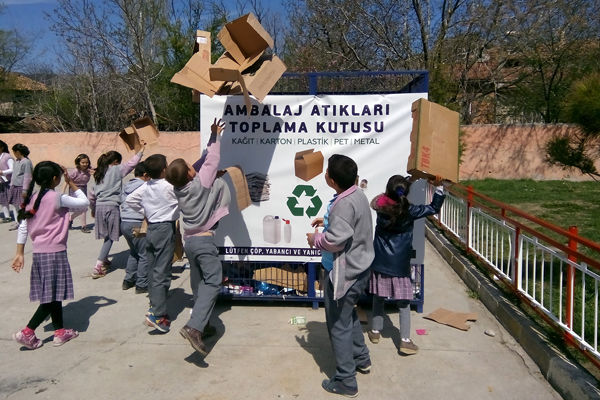
Sustainable handling of waste
Continuing the campaign without the computer incentive from Statkraft, local schools have been expanding the campaign and generating welcome income from paper and plastic waste delivered for recycling, and the Kargi power plant is reaching its main objective of reducing the debris flowing into the Kizilirmak River.
In the long run it is expected that there will be less waste coming from riverside villages and the Osmancik district centre a few kilometres upstream of Kargi.
Statkraft has also been considering how this simple, but highly effective initiative could be replicated to tackle waste management and debris challenges globally.
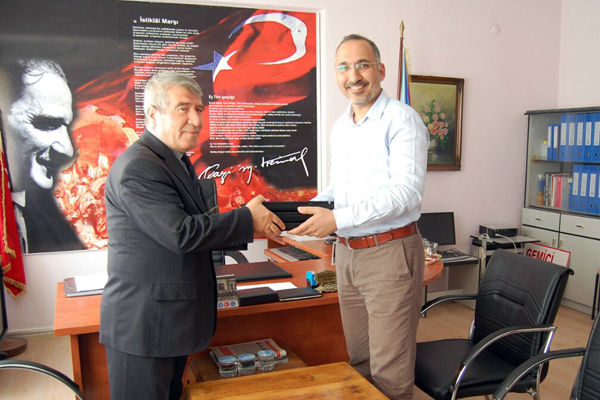
"I'm proud to be part of this"
“This is a good example of how we work in Turkey,” says Bahadir Sezegen, who initiated the campaign and coordinates environmental and social issues for Statkraft in Turkey.
“Knowing the general challenges we face in Turkey with regards to waste management and recycling, I am deeply impressed by the efforts and commitment from the school children and their administration," he adds.
"The pilot project did not lead to a clean reservoir overnight, but we managed to put into place a simple system for waste handling which ultimately will educate people, improve the local environment and help Statkraft reach its objective of less waste flowing into the reservoir. I’m proud to be part of this.”
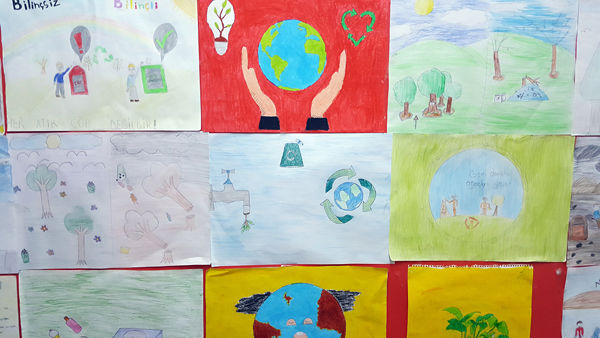
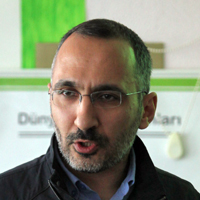
Bahadir Sezegen
Bahadir Sezegen coordinates environmental and social issues for Statkraft in Turkey.
This is a good example of how we work in Turkey.

See also: Safety on the timetable in Turkey
How can drowning accidents be prevented in open hydropower reservoirs? One good way is simply to talk to the largest risk group: children.
